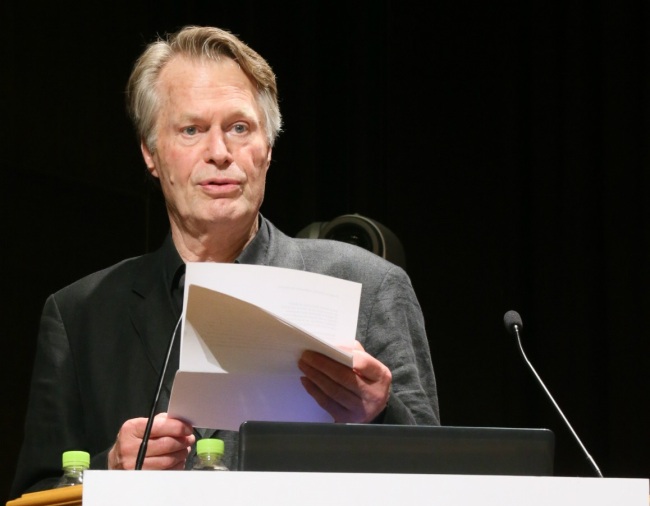According to Nobel laureate Jean-Marie Gustave Le Clezio, it is significant that the Korean word for “desire” -- “baram” -- is also a homonym of the word for “wind.”
“Like the wind, desire is rough, intense and sudden, but it also provides useful inspiration. Isn’t this what all literature attempts to show?” posed the French-Mauritian writer and Nobel laureate at a lecture titled “Korea, a Culture of Desires” in Seoul on Wednesday.
“Literature has traditionally depicted diverse forms of desire -- desire for love, desire for an infinite existence, desire for an ideal world.”
In his lecture, Le Clezio discussed examples of how desire manifests itself in Korean literature, citing authors such as Hwang Sok-yong, Yun Dong-ju, Kim You-jeong and Lee Seung-u.
He also addressed the Korean sentiments of “han” and “jeong” -- “emotions that are untranslatable into French” and which talk of “bitterness and hopelessness” as well as “sharing and generosity,” respectively -- that are seen as defining postwar Korean literature.
“The emptiness of war, the violence of division and the sentiment of ‘han’ persist in modern society. This is because brutality has ... increased in a society where individuals can no longer find a cause, a world filled with urbanization and a desire for success.”
Some contemporary writers, such as Han Kang, who became the first Korean national to win the Man Booker International Prize last month for her novel “The Vegetarian,” are moving past the collective memory of war and onto more “intimate and complex” themes, Le Clezio noted.
 |
Nobel laureate and writer Jean-Marie Gustave Le Clezio gives a lecture titled “Korea, a Culture of Desires” at the Kyobo Building in downtown Seoul, Gwanghwamun district on Wednesday. (Yonhap) |



![[Today’s K-pop] Blackpink’s Jennie, Lisa invited to Coachella as solo acts](http://res.heraldm.com/phpwas/restmb_idxmake.php?idx=644&simg=/content/image/2024/11/21/20241121050099_0.jpg)



